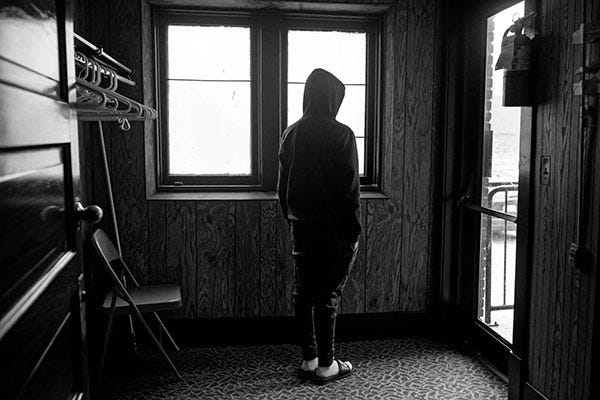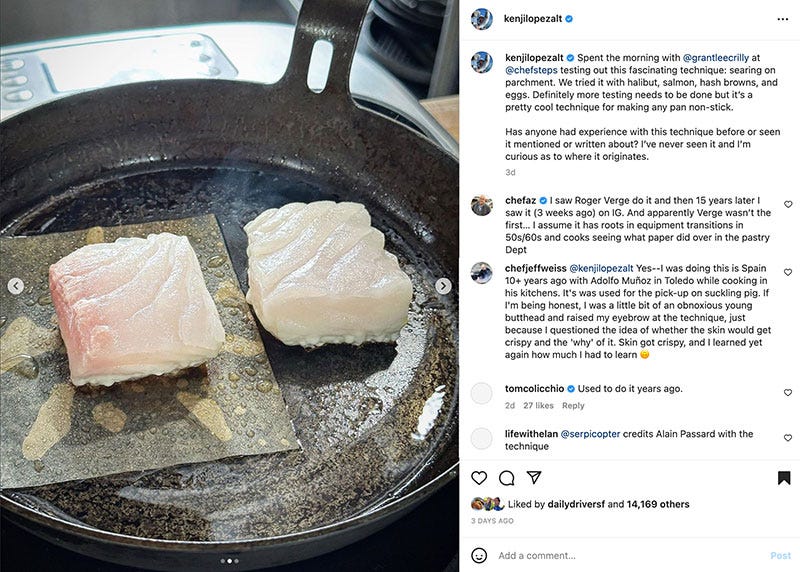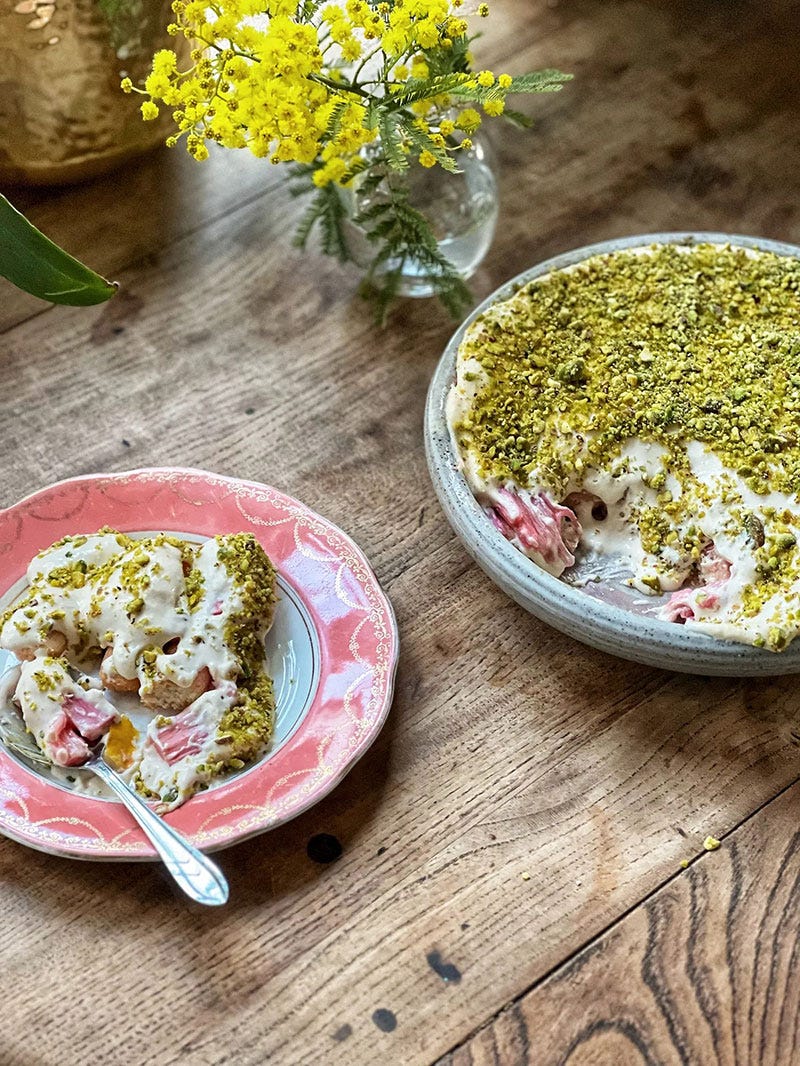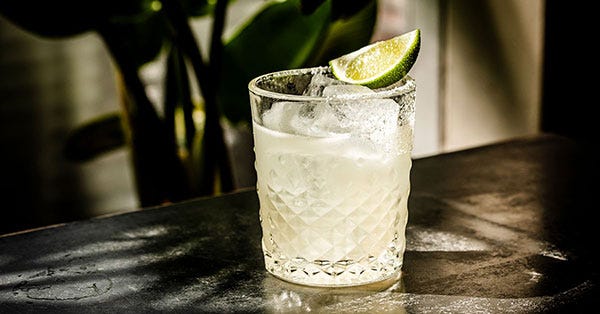Hello!
BTW, I'm Bruce Cole, Publisher of Edible San Francisco. If you’re new here, welcome to Eat.Drink.Think., a newsletter spotlighting seasonal recipes, the latest SF Bay Area food news, poetry, and more!
👉 ICYMI: The most-clicked link from our last newsletter was Common Food Storage Mistakes to Avoid via Which? UK.
A Little Blow Will Do Ya: Jeremiah Tower is out of the gate with his new Substack newsletter, and the first post is titled Cocaine and Cooking at Chez Panisse (c. 1974):
In sauntered a friend of one of our waiters with a black-leather-coated accomplice. Flashing a gold-toothy smile as he glided by me, he pulled a plastic bag out of his coat. Then dumped half a pound of white powder on top of the chest freezer at the back of the kitchen. He cut it into several long lines and handed me a straw fashioned from a rolled-up twenty-dollar bill … Alice disapproved of using cocaine, because she knew it interfered with the proper running of the restaurant. Still, inasmuch as she knew it was a release from the mad pressures of maintaining and improving upon an increasingly famous restaurant, she turned a mostly blind eye.
Ah, the 70s! Subscribe to Jeremiah Tower’s Out of the Oven Substack.
Trend Alert: You’re about to be inundated by recipes that call for searing fish or cooking eggs on parchment.
#PROTIP: You don’t need parchment to cook eggs in a stainless steel pan. Preheating the pan is key; the metal molecules on the pan's surface expand and merge as the temperature rises. When you sprinkle a couple of drops of water into the pan, they form ball-shaped droplets that roll and bounce around the surface in what’s known as the Leidenfrost effect. From Wikipedia:
The Leidenfrost effect is a physical phenomenon in which a liquid, close to a surface that is significantly hotter than the liquid's boiling point, produces an insulating vapor layer that keeps the liquid from boiling rapidly. Because of this repulsive force, a droplet hovers over the surface, rather than making physical contact with it. The effect is named after the German doctor Johann Gottlob Leidenfrost, who described it in A Tract About Some Qualities of Common Water.
This is most commonly seen when cooking, when drops of water are sprinkled onto a hot pan. If the pan's temperature is at or above the Leidenfrost point, which is approximately 193 °C (379 °F) for water, the water skitters across the pan and takes longer to evaporate than it would take if the water droplets had been sprinkled onto a cooler pan.
We cook omelets and scrambled eggs in our Hestan Nanobond SS skillet using this technique all the time (we don’t own a non-stick pan); with the pan preheated properly, the eggs will never stick! Here’s how to do it. Preheat your pan over medium-high heat until drops of water roll and bounce around the surface. If the water drops hit the pan’s surface, hiss, and evaporate, the pan isn’t hot enough. Once you’ve hit the Leidenfrost stage, add butter or oil to the pan and swirl to coat the surface. The fats will ride above the pan’s surface on the vapor layer, essentially making the pan non-stick. Add the eggs to the pan, and stir, pushing the cooked exterior to the middle and tilting the pan to let the runny eggs flow back over the surface. At this point, you can lower or turn off the heat as the will continue eggs cook quickly due to the pan's residual heat. Try it, and let us know how it goes! Bon appetit!
A Mammoth of a Meatball: Australian company Vow has created a meatball using DNA from the long-extinct mammoth as part of a project to demonstrate the potential of meat grown from cells. Vow aims to mix and match cells from unconventional, but not necessarily extinct, species to create new kinds of meat; think crocodile, peacock, and alpaca. The Guardian
Egg Money: In an excerpt from her new book, ‘Under the Henfluence, Inside the World of Backyard Chickens and the People Who Love Them’ (Agate, March 2023), Tove Danovich discusses her ongoing fascination with chickens and the challenge of reconciling the backyard trend with today’s industrial practices. Danovich reflects on her family's history of raising chickens and how women’s income was often called “egg money” in farm households because it so commonly came from raising chickens. Civil Eats
Strawberries Underwater: Floods caused by heavy rainfall across northern California this winter have resulted in substantial losses for the state's family farmers. JSM Organics' strawberry crop has been ruined, with farmer Javier Zamora reporting that 32 of his 72 farmable acres near Watsonville flooded, putting more than a third of his farm underwater. Nearby, Catalán Family Farm suffered damages to the tune of at least $100,000 to its equipment and crops. Along with farmers losing access to land, farm workers have been unable to work for almost a month. Sadly, most are not eligible for unemployment because of their citizenship or immigration status. Becky Duffett for Bi-Rite Market
Rhubarbmisu: The rhubarb dessert you should all be making this weekend. From Rosie Birkett’s A Lot On Her Plate
America Doesn’t Know Tofu: China has spent millennia exploring the culinary possibilities of soybean curds. The West has barely scratched the surface. Asterisk Mag
Lip Smacking Gochujang: Eric Kim dials up more deliciousness with Gochujang Buttered Noodles and Gochujang Potato Stew. NY Times (gift article)
Ghost Kitchens Are Almost Dead: The pandemic-led rise of ghost kitchens was overhyped, and the demand for convenient delivery solutions was misplaced. Ghost kitchen pioneer Reef reportedly received over a billion dollars in investments but is closing unprofitable operations in cities, including Portland and Philadelphia. Its partnership with Wendy’s, which planned to open 700 delivery-only locations across the US, Canada, and the UK, has withered to 150 as CEO Todd Penegor stated that delivery kitchens would not be a large element of the company's growth trajectory moving forward. Expedite
Uncancelled? Cookbook author and food writer Alison Roman whose Substack "A Newsletter" boasts over 200,00 subscribers, has released a new cookbook, Sweet Enough: A Dessert Cookbook. She talks to Eliana Dockterman of Time about persevering after losing her NY Times column due to the controversial statements she made in 2020 (details here): “There are certain things that can only come from failing in a really epic way in a very public forum, you become more nervous and afraid and ashamed. But you also become a little bit more brave.”

Business As Usual: “Are We Actually Arguing About Whether 14-Year-Olds Should Work in Meatpacking Plants?” Governor Sarah Huckabee Sanders of Arkansas recently signed a bill that makes it easier for employers to hire children under 16, rolling back the state's child labor protections. And according to US Labor Department data released in February, there has been a 69% increase in the number of children employed illegally by companies since 2018. NY Times (gift article)
We Need a Drink: Spearheaded by a group of California bartenders, these four “culinary cocktails” defined a movement. Punch
“Why Aren’t More Black Wine Consumers Coming to Napa?” Wine writer Esther Mobley cites a 2018 study by Destination Analysts that showed only 4% of visitors to Napa Valley were Black. Yet, Black drinkers account for around 10% of total wine consumption in the U.S. Brown Estate, a Black-owned Napa winery, might seem like an under-the-radar destination for a tasting; still, it has a large, devoted following of Black wine lovers. Mobley notes, “The entire tasting room experience is very dialed-in, with impeccable service, smart glassware, a way-better-than-average cheese plate and — most important — great wines.” SF Chronicle (gift article)
Have You Eaten Yet? A new book by documentary filmmaker Cheuk Kwan explores the story of 15 of the world's most unexpected Chinese restaurants, from the Arctic Circle to the Amazon. Kwan, who spent four years traveling the world to create a documentary series on diasporic restaurants, sees food as an illustration of how adaptive and creative people can be when they're thrown into a foreign land and barriers to language. Kwan, born in Hong Kong and raised in Singapore and Japan, will join chef Martin Yan in a conversation about food, the Chinese diaspora, and how restaurants function as a survival tool for Chinese immigrants worldwide. KQED
Have You Eaten Yet?’ takes place on Sunday, April 2, from 2–4 p.m. at the Oakland Asian Cultural Center (388 9th St., Ste. 290) in Oakland. Tickets are free with pre-registration, and the event is wheelchair-accessible.
If you liked this post from EAT. DRINK. THINK. on Substack, why not share it?
On repeat this week: Can’t get enough of this Japanese Jazz from '70s Vinyl Set on the My Analog Journal YouTube channel.
That’s all for this week.
We’re outta here. Be well and take care,
—Bruce
The only people for me are the mad ones: the ones who are mad to live, mad to talk, mad to be saved, desirous of everything at the same time, the ones who... burn, burn, burn like fabulous yellow Roman candles.











✨🎩